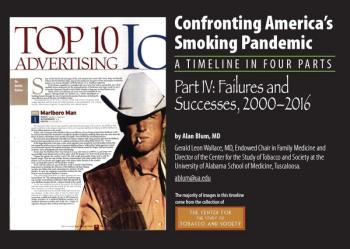
In patients with HER2-positive breast cancer undergoing trastuzumab therapy, the use of an ACE inhibitor or beta-blocker could protect against cardiac toxicity.

Your AI-Trained Oncology Knowledge Connection!


In patients with HER2-positive breast cancer undergoing trastuzumab therapy, the use of an ACE inhibitor or beta-blocker could protect against cardiac toxicity.

Do you know the latest on the 24-gene Post-Operative Radiation Therapy Outcomes Score for patients with prostate cancer? How about the important risk factors for prostate cancer incidence?

The use of radiotherapy was associated with an overall survival benefit in patients with prostate cancer and lymph node involvement who underwent radical prostatectomy and were also treated with androgen-deprivation therapy.

Computer analysis of subvisual data extracted from routine clinical MRI exams outperforms human experts at differentiating brain tumor recurrence from radiation necrosis.

We review here the recommendations of the American Society of Clinical Oncology, as well as some new and promising approaches to neuropathy, including new neuromodulation techniques.

Chemotherapy-induced peripheral neuropathy is a serious yet common side effect of cancer treatment. This devastating complication, which typically manifests as tingling and numbness in the hands and feet, has an enormous influence on patients’ quality of life.

Although melanoma represents less than 5% of skin cancers, it results in the most deaths. In the United States this year an estimated 76,380 new cases of melanoma will be diagnosed, and 10,130 people will die of the disease. Test your knowledge of melanoma risk factors, diagnosis, and treatment in our latest quiz.

This Medical News Minute examines a study that found that despite improving outcomes in breast cancer, outcomes among black patients still lag in comparison to white patients.

The American Academy of Family Physicians, American Cancer Society, ACOG, and the US Preventive Services Task Force each have published guidelines for breast cancer screening. Do you know the areas in which they differ?

Despite evolution of treatments and substantial improvements in survival, the self-reported health status among adult survivors of childhood cancers has not improved over 3 decades.

This Medical News Minute examines a recent study that compared two payment models, fee-for-service vs bundled payment, to see if there was any effect on breast cancer outcomes.

Stratifying breast cancer patients by chemotherapy and genetic susceptibility, researchers were able to identify patients at high risk of venous thromboembolism.

A recent retrospective study found that adding chemotherapy to postoperative treatment of craniospinal radiation for adults with medulloblastoma improves survival.

A cognitive rehabilitation program known as Insight resulted in improvements in cognitive symptoms compared to standard care in adult cancer survivors.

Do you know the ASCO guidelines for metastatic castration-resistant prostate cancer? How about prostate cancer incidence in various countries? Test your knowledge on these topics and more in our latest quiz.

Treatment at a facility with a higher patient volume was associated with a lower risk of mortality for patients with multiple myeloma, even after adjustment for sociodemographic and geographic factors and comorbidities.

Cancer survivors in the United States were taking medications to treat depression and anxiety at almost twice the rate of the general population between 2010 and 2013.

A new study showed that a 24-gene signature can predict outcomes following postoperative radiotherapy in patients with prostate adenocarcinoma who underwent radical prostatectomy.

This Medical News Minute examines a recent report that found that chronic infection with hepatitis B or C virus was associated with an increased risk for lymphoma among HIV patients on antiretroviral therapy.

This Medical News Minute outlines efforts by a number of advocacy groups and medical associations urging the CMS to abandon proposed reimbursement cuts to low-dose CT screening for lung cancer.

In patients with HER2-positive breast cancer undergoing trastuzumab therapy, elevated troponin I or T before the treatment is associated with an increased risk of trastuzumab-related cardiac dysfunction.

A study presented last month at ASTRO found that a boost of radiation therapy following lumpectomy in DCIS patients resulted in reduced rates of local recurrence.

A new study from the ACS indicates that the proportion of cancer deaths from cigarette smoking varies substantially by state, but is highest in the South where as many as 40% of cancer deaths in men are smoking-related.

A study presented last month at ASTRO found that better radiation outcomes for head and neck cancer were associated with higher facility volume.

Common breast cancer risk alleles are correlated with both the incidence of breast cancer and mortality, and using these alleles along with other factors could identify women at very low risk of breast cancer who could potentially avoid mammography.

Dr. Alan Blum and Cancer Network have partnered to assemble a four-part slideshow series addressing the history of America’s smoking pandemic. Part 4 highlights a period of further regulation on the tobacco industry, the advent of e-cigarettes, and more.

Venous thromboembolism is significantly more likely over the long term in breast cancer patients than in the general population, according to a study in Sweden.

Due to the delicate hemostatic balance in cancer patients, an understanding of both the clotting and bleeding risks in this population is crucial to effectively manage hematologic complications.

In this interview we discuss the CRISPR technology currently being used to “edit” genes and when we might see the technology in mainstream practice.

A study of patients receiving rituximab therapy found that screening for hepatitis B virus infection (HBV) was suboptimal, and some patients who did not receive antiviral treatment experienced HBV reactivation or flare. Screening rates, however, do appear to be improving over time.